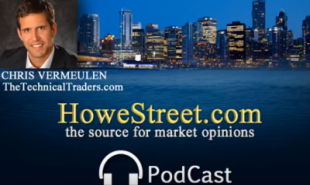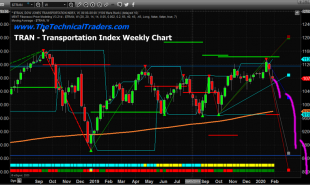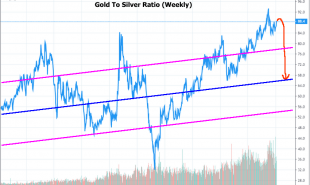
By Tsvetana Paraskova of Oilprice- Aug 12, 2018, 6:00 PM CDT
Like many spats these days, the Saudi Arabia/Canada one started with a tweet. Canada’s Foreign Minister Chrystia Freeland called for the release of Samar Badawi, a women’s rights activist who is the sister of jailed blogger Raif Badawi, whose wife is a Canadian citizen.
The arrests had taken place in OPEC’s largest producer and leading exporter Saudi Arabia, which has amassed its wealth from oil and now looks to attract foreign investors as it seeks to diversify its economy away from too much reliance of crude oil sales.
Canada’s foreign ministry’s global affairs office urged “the Saudi authorities to immediately release” civil society and women’s rights activists.
Saudi Arabia—often criticized for its far from perfect human rights and women’s rights record—didn’t take the Canadian urge lightly. Saudi Arabia expelled the Canadian ambassador, stopped direct Saudi flights to Canada, stopped buying Canadian wheat, ordered Saudi students and patients to leave Canada, froze all new trade and investment transactions, and ordered its wealth funds to sell their Canadian stock and bond holdings in a sweeping move that surprised with its harshness many analysts, Canada itself, and reportedly, even the U.S.
The Saudi reaction shows, on the one hand, the sensitivity of the Kingdom to criticism for its human rights record. On the other hand, it sent a message to Canada and to everyone else that Saudi Arabia won’t stand any country meddling in its domestic affairs, or as its foreign ministry put it “an overt and blatant interference in the internal affairs of the Kingdom.”
The Saudi reaction is also evidence of Crown Prince Mohammed Bin Salman’s harsher international diplomacy compared to the previous, ‘softer’ diplomacy, analysts say. Saudi Arabia is also emboldened by its very good relations with the current U.S. Administration, and picking a fight with Canada wouldn’t have happened if “Trump wasn’t at the White House,” Haizam Amirah-Fernández, an analyst at Madrid-based think tank Elcano Royal Institute, told Bloomberg.Related: U.S. Drillers Add Double Digit Oil, Gas Rigs
The United States hadn’t been warned in advance of the Saudi reaction to Canada and is now trying to persuade Riyadh not to escalate the row further, a senior official involved in talks to mediate the dispute told Bloomberg.
The row, however, will not affect crude oil exports from the Kingdom, Saudi Energy Minister Khalid al-Falih has said, adding that Riyadh’s policy has always been to keep politics and energy exports separate.
Canada imports around 75,000-80,000 bpd of Saudi oil, and these barrels can easily be replaced, CBC quoted analyst Judith Dwarkin as saying earlier this week. The chief economist of RS Energy Group referred to this amount as “a drop in the bucket” at less than a tenth of Canadian crude imports compared with imports from the United States, which amount to about 66 percent of the total. The United States could easily replace Saudi crude thanks to its growing production, Dwarkin said.
Still, the strong Saudi message to Canada (and to the world) is not entirely reassuring for the investor climate in Saudi Arabia, which is looking to attract funds for its economic overhaul and mega infrastructure projects worth hundreds of billions of dollars each.
“The Saudi leadership wants to drive home a message that it’s fine to invest in Saudi Arabia and bring your money to Saudi Arabia, but that there are red lines that should not be crossed,” Riccardo Fabiani, a geopolitical analyst at Energy Aspects, told Bloomberg, but warned that such strategy could backfire.
Analysts are currently not sure how the feud will unfold, but Aurel Braun, a professor of political science and international relations at the University of Toronto, told Canada’s Global News that Saudi Arabia is unlikely to back down and reverse all its retaliatory measures without getting something back from Canada.Related: The Unforeseen Consequences Of China's Insatiable Oil Demand
Canadian Prime Minister Justin Trudeau is not apologizing for his country’s call that the Saudis release human rights activists.
“We have respect for their importance in the world and recognize that they have made progress on a number of important issues, but we will, at the same time, continue to speak clearly and firmly on issues of human rights, at home and abroad, wherever we see the need,” Trudeau told a news conference this week.
The economic impact of the Saudi retaliation on Canada is unlikely to be large, but the fact that Saudi Arabia is whipping the oil wealth stick to punish economically what it sees as “blatant” interference with its affairs is sending a message to other countries, and a not-so-positive message to foreign investors.
By Tsvetana Paraskova for Oilprice.com







